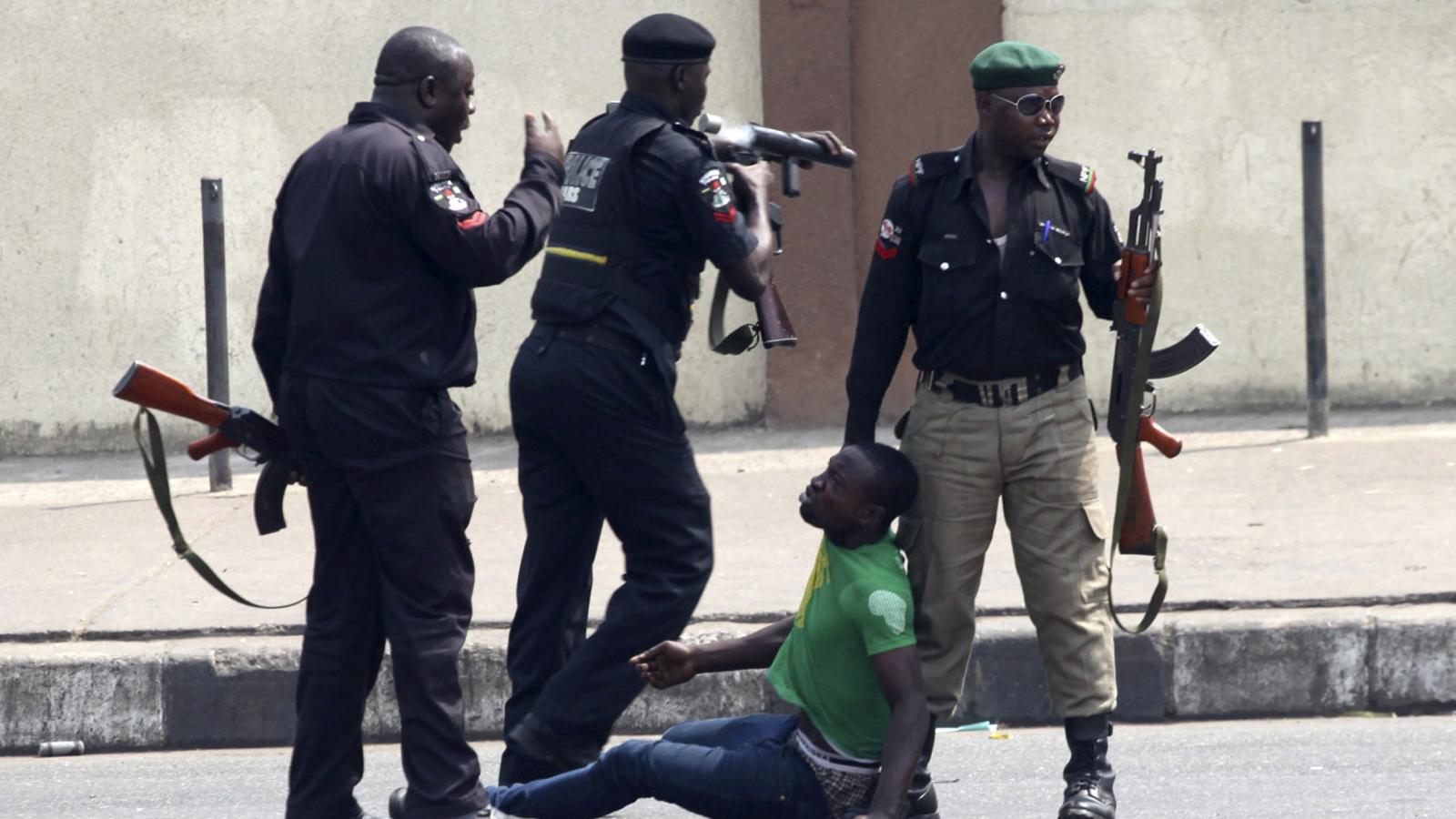The United States, in a report, “Country Reports on Human Rights Practices for 2020’’, released on Wednesday by the United States Department of State, Bureau of Democracy, Human Rights and Labour, has excoriated Nigeria over its human rights records.
In the report titled, ‘’’Nigeria 2020 Human Rights Report, Executive Summary,’’ the US accused Nigeria of ‘’significant’’ human rights abuses, which include: unlawful and arbitrary killings by both government and non-state actors; forced disappearances by the government, terrorists and criminal groups; torture and cases of cruel, inhuman, or degrading treatment or punishment by the government and terrorist groups; harsh and life-threatening prison conditions.
However, the reported stated that the US could not confirm the number of casualties at the Lekki Tollgate shootings that occurred last year.
“Accurate information on the fatalities from the shooting remain fuzzy because apart from “Amnesty International which reported 10 persons died during the event, no other organization was able to verify the claim,” it said.
When contacted to react to the report, Presidential spokesman, Mr. Femi Adesina, referred THISDAY to the Minister of Information and Culture, Alhaji Lai Mohammed.
“Please get across to the Minister of Information and Culture, Alhaji Lai Mohammed. He is to react to issues that have to do with the government. He is in a better position to answer your question,” Adesina said.
But efforts to reached Mohammed yesterday were futile as he neither picked calls to his telephone line nor respond to a text message sent to him.
The 102-page report also accused the federal government of ‘’arbitrary detention by government and non-state actors, political prisoners, serious problems with the independence of the judiciary, arbitrary or unlawful interference with privacy, serious abuses in an internal conflict, including killing and torture of civilians; serious restrictions on free expression, the press, and the internet, including the existence of criminal libel laws.’’
The report also indicted Nigeria for ‘’substantial interference’’ with the rights of peaceful assembly and freedom of association, in particular for lesbian, gay, bisexual, transgender, and intersex persons; severe restrictions on religious freedom; serious acts of corruption; trafficking in persons; inadequate investigation and accountability for violence against women; the existence or use of laws criminalising consensual same-sex sexual conduct between adults; and the worst forms of child labour.
The US stated that even when the federal government took ‘’some steps’’ to investigate alleged abuses by police, including the Special Anti-Robbery Squad (SARS) and military forces, impunity remained a significant problem.
‘’There were reports of further progress informally separating and reintegrating child soldiers previously associated with the Civilian Joint Task Force, a non-governmental self-defence militia, which received limited state government funding.
‘’Boko Haram and the Islamic State in West Africa continued attacks on civilians, military, and police; recruited and forcefully conscripted child soldiers; and carried out scores of person-borne improvised explosive device attacks–many by coerced young women and girls–and other attacks on population centres in the North-east and in Cameroon, Chad, and Niger. Abductions by Boko Haram and the Islamic State in West Africa continued,’’ the report added.
The report said even though consistent with the constitution, the federal government had continued to turn to the armed forces to address internal security concerns, due to insufficient capacity and staffing of domestic law enforcement agencies.
It said there were reports that members of the security forces committed human rights abuses.
The report stated: ‘’Civilian authorities did not always maintain effective control over the security services. The insurgency in the North-east by the militant terrorist groups Boko Haram and the Islamic State in West Africa continued.
‘’The groups conducted numerous attacks on government and civilian targets, resulting in thousands of deaths and injuries, widespread destruction, the internal displacement of more than two million persons, and the external displacement of somewhat more than an estimated 300,000 Nigerian refugees to neighbouring countries as of December 14.’’
On the alleged controversial killings at the Lekki Toll Gate in Lagos on October 20, last year, it said ‘’accurate information’’ on fatalities resulting from the shooting was not available at year’s end.
US said: ‘’Impunity remained a significant problem’ in the security forces, including in the police, military, and the Department of State Services (DSS). The DSS, police, and military reported to civilian authorities but periodically acted outside civilian control.
‘’The government regularly utilised disciplinary boards and mechanisms to investigate security force members and hold them accountable for crimes committed on duty, but the results of these accountability mechanisms were not always made public.
‘’Police remained susceptible to corruption, faced allegations of human rights abuses, and operated with widespread impunity in the apprehension, illegal detention, and torture of suspects.’’
Questioning the state of Nigerian prisons, the report said prisoners and detainees were reportedly subjected to torture, overcrowding, food and water shortages, inadequate medical treatment, exposure to heat and sun, and infrastructure deficiencies that led to inadequate sanitary conditions that could result in death.
According to the report, ‘’Guards and prison employees reportedly extorted inmates or levied fees on them to pay for food, prison maintenance, transport to routine court appointments, and release from prison. Female inmates in some cases faced the threat of rape.”
The report said only prisoners with money or support from their families had sufficient food, and accused prison employees of sometimes stealing money provided for prisoners’ food.









